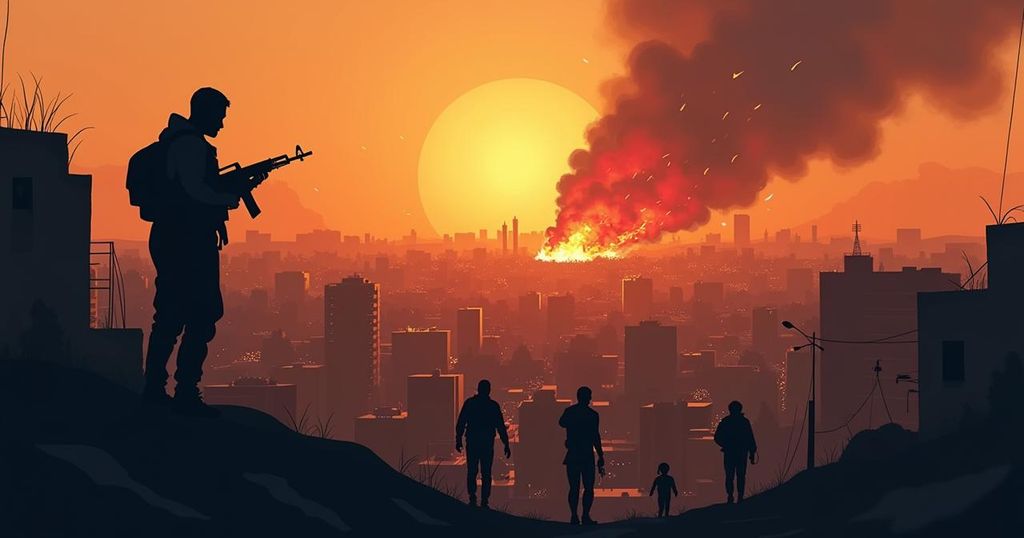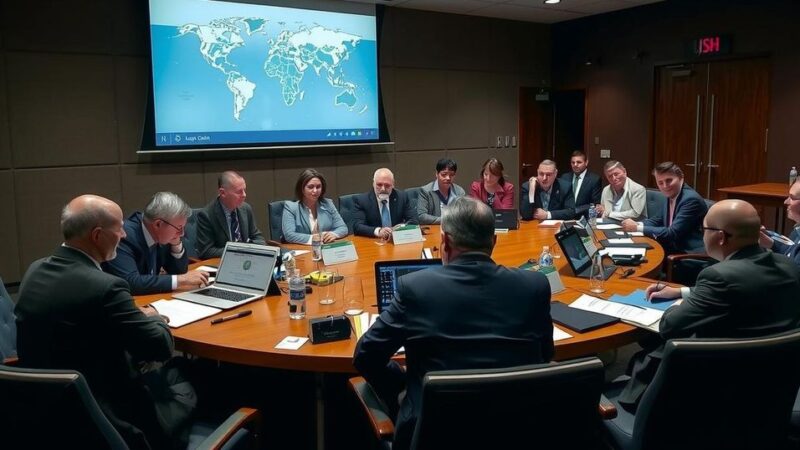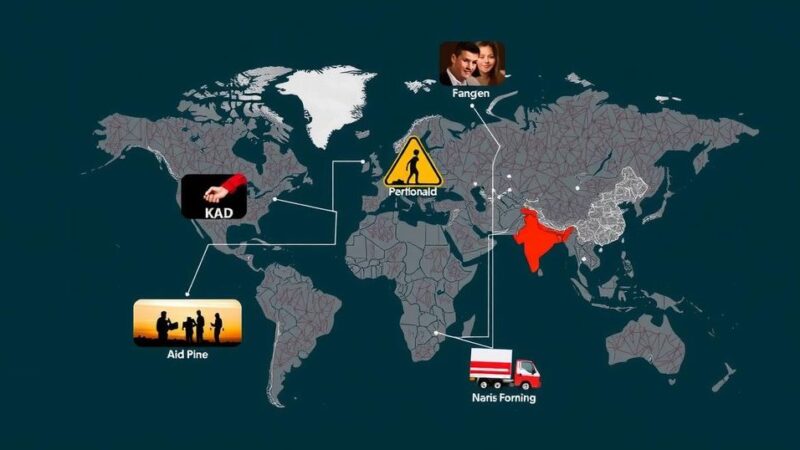Recent hostilities have seen Israel intensifying its military strikes against Hezbollah in Lebanon while Iranian officials warn Gulf states against complicity with Israel. The IDF is also reviewing the return of displaced residents from northern Israel, following extensive rocket fire from Hezbollah. As geopolitical tensions rise, the situation remains fluid, with international implications.
The Israel Defense Forces (IDF) engages in strikes against Hezbollah and other militant assets in Lebanon while monitoring regional dynamics and potential threats from Iran. Reports indicate that the IAF has successfully intercepted a drone originating from Iraq and has conducted significant operations targeting Hezbollah officials and infrastructure, including recent strikes in Beirut. Concurrently, the IDF is assessing the conditions under which approximately 60,000 evacuated residents from Israel’s northern regions can return home. Despite these developments, criticism has arisen concerning the government’s handling of residents affected by the ongoing conflict, particularly as Hezbollah launches numerous rockets towards Israeli cities, intensifying the conflict in the North. U.S. military and diplomatic efforts are also in play as President Biden’s planned discussions with European leaders are postponed, reflecting the broader regional tensions and upcoming geopolitical considerations.
The ongoing conflict involving Israel and Hezbollah has escalated significantly following the Iranian missile attack last week. Iranian officials have publicly warned Gulf states against supporting Israel, framing any assistance as a unified regional action that would merit a response from Tehran. This context heightens the geopolitical stakes as Israel actively engages with Hezbollah in Lebanon, aiming to dismantle their military capabilities. The IDF’s actions are part of a larger strategy to secure the northern border while addressing the humanitarian aspects of residents displaced by the conflict. The situation remains tense as both military operations and regional diplomacy unfold amid threats and retaliations.
The military operations conducted by the IDF against Hezbollah reflect Israel’s ongoing strategy to mitigate threats from militant groups in the region. Meanwhile, the Iranian government remains vigilant, cautioning neighboring Gulf states against actions perceived as hostile, which could provoke retaliation. As the conflict evolves, the return of displaced northern residents remains a pressing concern, fraught with challenges that juxtapose military activities with humanitarian needs. Ultimately, both Israel and Iran are positioned in a complex regional landscape, where military engagements and diplomatic actions are intricately linked to broader strategic objectives.
Original Source: www.jpost.com






